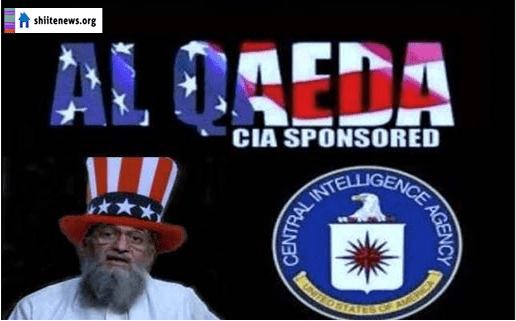While many focus on Sunni foreign fighters in Syria and Iraq, Iranian-backed Shia militias have been as bloodthirsty and threatening as ISIS. The survival of the Assad regime is due in large part to these militias, and Iran has redeployed many to Iraq. Here’s how they recruit supporters for their terror operations.
Iran has led the recruitment effort for regional Shiites into these militias using propaganda designed to reinforce its own ambitions. Sunni opponents are demonized.
The danger to shrines and other holy sites sacred particularly in the Shia tradition is emphasized. The destruction wrought by ISIS on such sites means that the recruiting efforts on this front have been particularly effective.
The most important site to the recruitment effort is the golden-domed Sayyeda Zainab shrine. This has featured especially prominently in Hezbollah recruiting efforts. Poetry and songs about the shrine and the glory of defending it have proven very effective recruiting tools– even in the West.
The recruiting effort has lately been extended to the defense of all shrines, which lays a rhetorical claim to a need for Shia dominance across the Levant.
This movement to Shiite-dominant rhetoric is noteworthy given that Iran’s official revolutionary message is pan-Islamic.
Though the ultimate claims being laid are to regional dominance, Hezbollah has been effective at leveraging Shiite-centric rhetoric to seem to be claiming leadership only in Shiite areas. This subtlety in the recruiting rhetoric makes it seem as if they are making a claim that would allow Sunni and other radicals to ignore their efforts, because those efforts are limited to Shia areas.
As the shrines of Shia Islam can be found throughout the region, however, the seeds are being sown for the regional dominance of Shia Islam. That is the very move long asserted by the Khomeini revolution in Iran: that Iran should take leadership of the whole Islamic world.
Another rhetorical method that has been quite effective is the use of accusations of takfirism.
A takfiri is a Muslim who accuses other Muslims of apostasy. Such accusations were indeed quite characteristic of al Qaeda in Iraq under Zarqawi. Just as ISIS’ actual destruction of shrines has amplified the effect of claims that the shrines are in danger, al Qaeda and ISIS’ use of takfiri techniques has amplified the effectiveness of this rhetorical strategy.
However, the Shia militia recruiters extend the rhetoric to groups fighting in Syria who are leftists, liberals, and especially to those supported by Western powers.

Iranian state television has described fighters who beheaded Christians as “U.S.-backed rebels” and “Western mercenaries.” The United States was accused by Qods Force commander Qassem Soleimani of “bringing in al Qaeda” in order to topple the Assad regime.
This builds on a long tradition of Iranian rhetoric suggesting that America is trying to divide the Islamic world in order to conquer it. The Ayatollah Khomeini spoke of a Western conspiracy to separate “the various segments of the Islamic Ummah from each other” in order to make it easier to command. He added that “Sunnis… are our brothers and equal with us and are opposed to the attempts at creating dissention that certain criminals, agents of America and Zionism, are currently engaged in.” The elected government of Iran has also long forwarded these claims.
The current rhetorical strategy harkens back to this old approach. By painting themselves as the leader of efforts to avoid this division and conquest, Iran has another method of slipping Iranian and Shia leadership of Islam under a cloak of unity.
American and Western interests are thus tied to al Qaeda and ISIS, even as our governments assist Iran in fighting against those forces inside Iraq. Iran presents itself as the guarantor of Islamic unity, but these Shia militia have been its most effective partisans.
Qassem Suleimani is the commander of Quds Force, the elite faction of Iran’s Revolutionary Guards, is a veteran of decades…
Iran has long influenced the Middle East through the deployment of short ranged rockets and rocket artillery. They represent an…